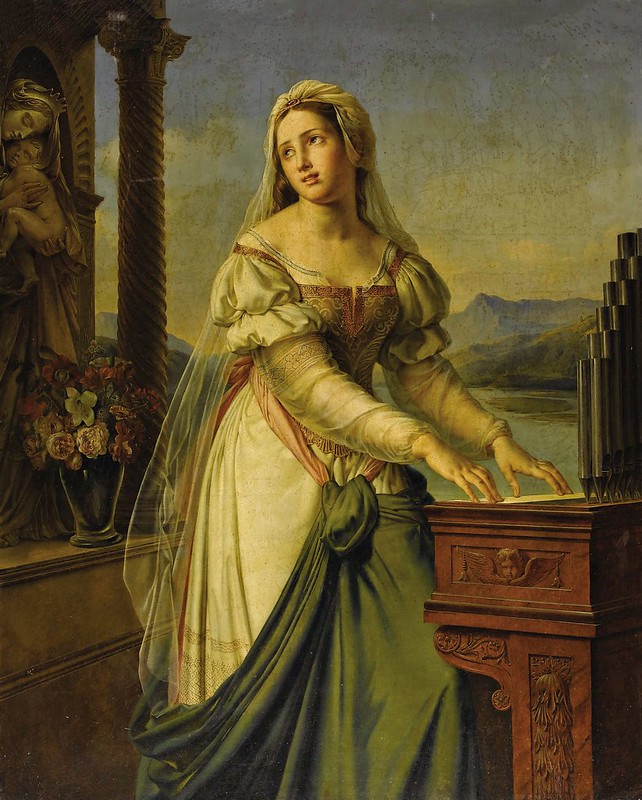John Stanley (1712-1786)
- Concerto (I) for the Organ, Opera X (1775)
Performers: Stephen Farr (organ); London Bach Consort
Further info: John Stanley (1712-1786) - Harpsichords concertos (1742)
---
English composer, organist and violinist. He became blind as the result
of a domestic accident at the age of two, and began to study music as a
diversion when he was seven. Little progress was made under his first
teacher, John Reading, but he got on so well under Maurice Greene at St
Paul's Cathedral that before he was 12 he was appointed organist at the
nearby church of All Hallows Bread Street. In 1726 he was elected to a
similar post at St Andrew's, Holborn, ‘in preference to a great number
of candidates’ (Burney), and in 1734 he was made organist to the
Honourable Society of the Inner Temple, having resigned from All Hallows
in 1727. According to his pupil John Alcock, Stanley's playing of
voluntaries at the Temple and St Andrew's attracted musicians from all
over London, including Handel. He was also an excellent violinist and
for several years directed the subscription concerts at the Swan Tavern,
Cornhill, and the Castle, Paternoster Row. In 1729 he became the
youngest person to gain a BMus degree from Oxford University. Stanley
was married in 1738 to Sarah, the elder daughter of Captain Edward
Arlond of the East India Company, who brought him a dowry of £7000. In
the same year the couple took up residence in Walbrook, where Sarah's
sister Ann joined them and later acted as Stanley’s amanuensis. Shortly
after his marriage he became friendly with the future music historian
John Hawkins, who supplied Stanley with texts for solo cantatas and who
later lived across the road from the Stanleys following their move to
Hatton Garden in 1751. Thanks largely to his remarkable memory, Stanley
was able to enjoy a comfortable living as an organist and teacher and to
join in music-making and card-playing with a large circle of friends.
He was also able to direct several Handel oratorios during the 1750s,
and after Handel's death in 1759 he assumed responsibility for the
annual Lenten oratorio seasons at Covent Garden (later at Drury Lane),
first with J.C. Smith and from 1776 with Thomas Linley. His own
oratorios Zimri (Covent Garden, 12 March 1760) and The Fall of Egypt
(Drury Lane, 23 March 1774) were modelled closely on Handel's, but were
apparently unsuccessful. In 1770 he was elected a governor of the
Foundling Hospital and until his death took a keen interest in its
musical affairs, directing the annual Messiah performances in 1775-77,
and selecting and composing music for the chapel services. He also took
part in charitable performances at the Magdalen Hospital. In 1779 he
succeeded Boyce as Master of the King's Band of Musicians, in which
capacity he composed 15 New Year and birthday odes. His collection of
music, books and instruments was auctioned at Christie's in June 1786.

Cap comentari:
Publica un comentari a l'entrada